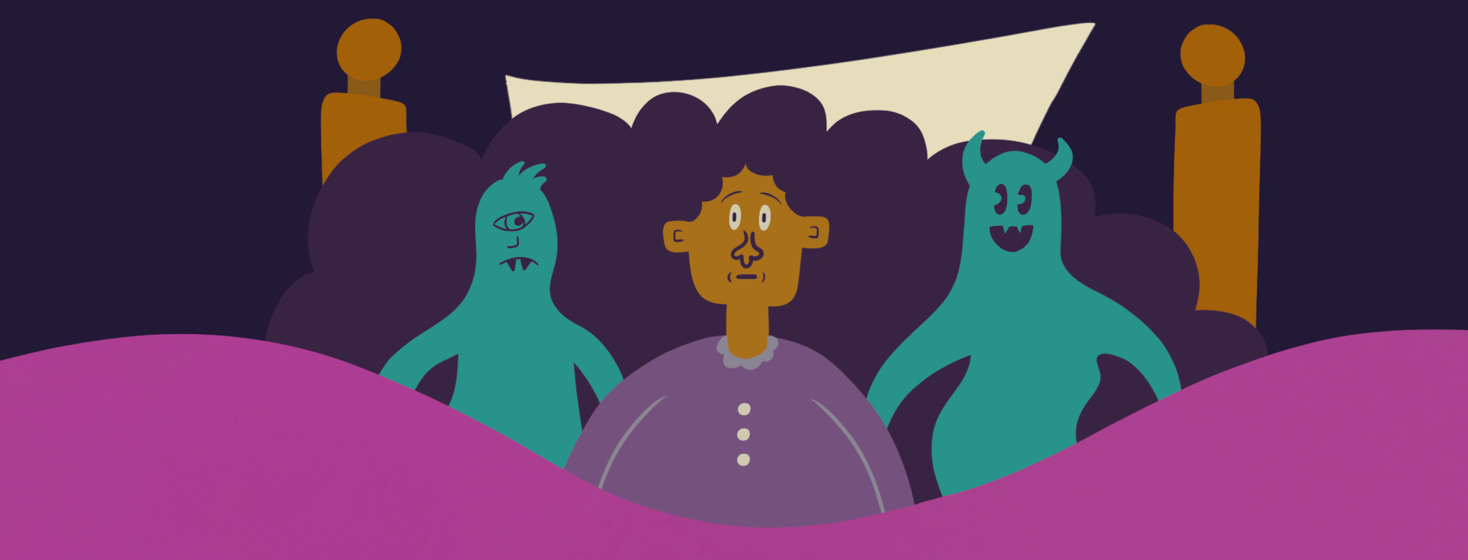Insomnia and Sleep Apnea - Common Bedfellows
I used to consider every problem with my sleep as being related to my sleep apnea. It never really occurred to me that a person could be coping with sleep apnea but also have insomnia at the same time. That is until I was lucky enough to interview Dr. Shelby Harris.
Dr. Harris is a licensed clinical psychologist and an expert in insomnia and, in particular, the treatment of insomnia with cognitive behavior therapy for insomnia or CBT-i.
Concurrent sleep conditions: sleep apnea and insomnia
Dr. Harris explained to me that it was common for patients with sleep apnea to have insomnia at the same time. She explained,
“People come to me because of insomnia and then I just ask the simple questions, 'Do you snore? Do you choke or gasp?' there’s so much overlap between insomnia and sleep apnea.”1
Arousals from sleep can be caused by sleep apnea, but people who then find it difficult to go back to sleep may develop insomnia. The good news is that sleep apnea and insomnia can be treated concurrently.
Someone with sleep apnea would likely be treated with a CPAP or a mandibular advancement device. In addition to this treatment, they can seek out CBT-i with a specialist to help them cope with insomnia.
What is insomnia?
Insomnia is defined as: “a common sleep disorder that can make it hard to fall asleep, hard to stay asleep, or cause you to wake up too early and not be able to get back to sleep. You may still feel tired when you wake up. Insomnia can sap not only your energy level and mood but also your health, work performance, and quality of life.”2
First-line treatment for insomnia
I was under the impression that the first line in insomnia treatment was being prescribed medication by a doctor. However, the American College of Physicians (ACP) recently recommended CBTi as the first-line treatment for insomnia before medication interventions.3
Avoiding medication side effects and addiction
Over the long term, cognitive behavior therapy has shown better results and avoided some of the negative side effects and addiction issues that go along with prescribing sedatives. Having completed a short cognitive behavior therapy course myself, I also think it gives the individual a feeling of empowerment and control.
My sleep specialist also advised me against taking sedative drugs because of the impact relaxing muscles of the throat can have on people with sleep apnea. He explained that there is potential for these drugs to make sleep apnea worse.
What is cognitive behavioral therapy for insomnia?
So what exactly does CBTi entail? One important element is keeping a sleep journal. This would be used to record your own assessment of how well or poorly you slept on a particular night.
Another key element of CBTi is to work on sleep hygiene, including consistent winding down, keeping the bedroom dark and cool, and avoiding heavy meals and alcohol close to bedtime.
Another key factor is getting out of bed when you aren’t feeling sleepy. This helps to associate bed with sleep, not restless tossing and turning.
Too few CBTi practitioners
CBTi specialists like Dr. Harris can be difficult to find, especially in certain areas of the country. The good news is that it is possible to implement some CBTi exercises from books, such as A Woman’s Guide to Insomnia. It is also possible to do the sleep journaling recommended by CBTi practitioners on your own.
Remember, sleep apnea can often run along with insomnia, but it’s possible to treat both conditions concurrently.
Have you struggled with waking up in the night and not being able to go back to sleep? Have you considered seeking treatment for insomnia? Leave a comment below to share your experience.

Join the conversation